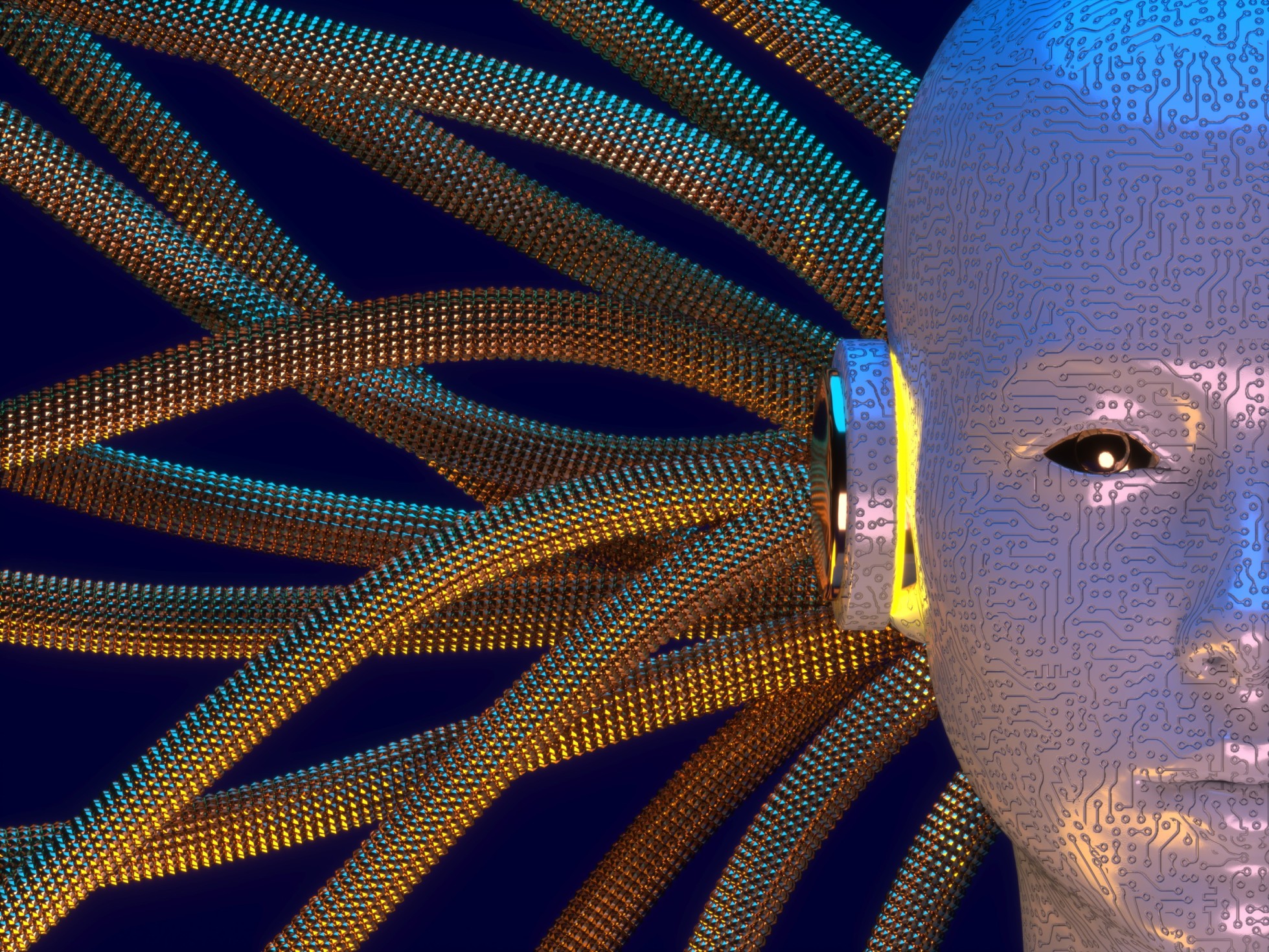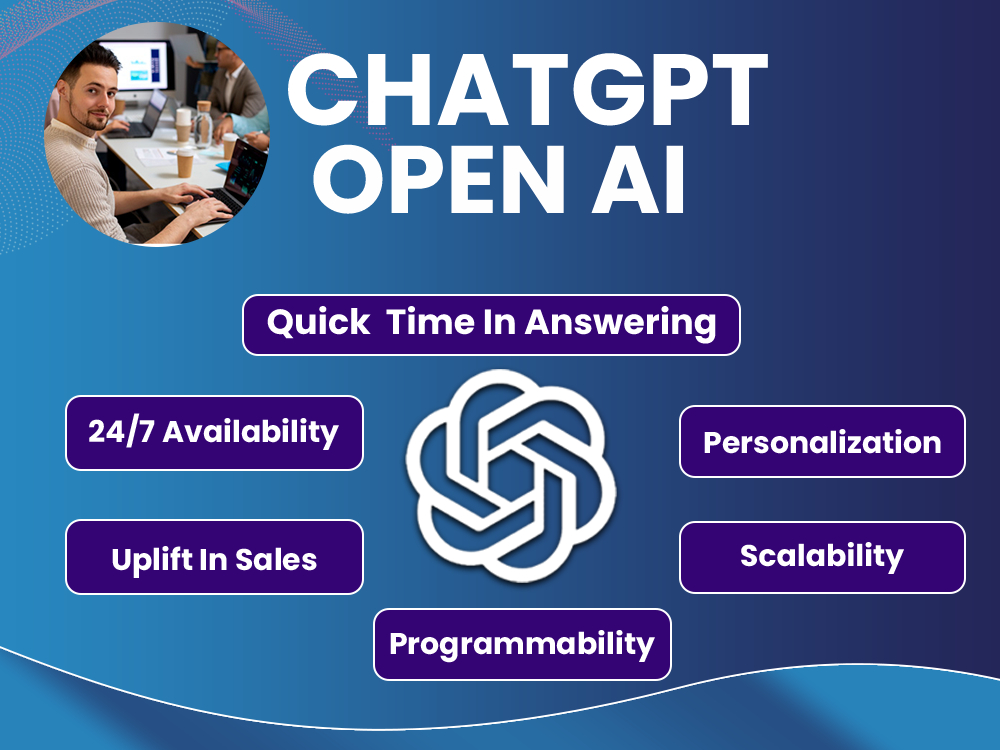In the ever-evolving landscape of artificial intelligence, the future of Generative AI holds immense promise and intrigue. As technology continues to advance at an unprecedented pace, the trajectory of Generative AI appears poised for groundbreaking developments. From revolutionizing creative industries to transforming healthcare and finance, the potential applications of Generative AI are virtually limitless.
One of the most notable trends on the horizon is the convergence of Generative AI with other cutting-edge technologies such as augmented reality (AR) and virtual reality (VR). This fusion has the potential to redefine immersive experiences, enabling the creation of hyper-realistic virtual worlds and interactive simulations that blur the lines between fiction and reality. Imagine stepping into a virtual environment generated in real-time by AI, tailored to your preferences and interactions—a glimpse into the future of entertainment, education, and beyond.
Moreover, Generative AI is poised to play a pivotal role in addressing pressing societal challenges, particularly in healthcare. From drug discovery to personalized medicine, AI-driven generative models have the potential to revolutionize the way we approach diagnosis, treatment, and prevention of diseases. By harnessing vast amounts of medical data and simulating complex biological processes, these systems can accelerate the pace of innovation and lead to more effective healthcare solutions.
However, with great power comes great responsibility, and the ethical considerations surrounding Generative AI loom large. As these systems become increasingly autonomous and creative, questions of accountability, bias, and privacy come to the forefront. It is imperative that we navigate these ethical complexities with care, ensuring that Generative AI is deployed in a manner that upholds human values and safeguards against potential harms.
Looking ahead, the future of Generative AI is both exciting and uncertain. While the potential for innovation and positive impact is vast, so too are the challenges and risks that accompany such transformative technologies. By staying vigilant, fostering collaboration across disciplines, and prioritizing ethical considerations, we can strive to shape a future where Generative AI serves as a force for good, enriching our lives and advancing society as a whole.
In the realm of creative industries, Generative AI is poised to disrupt traditional modes of content creation and expression. From generating lifelike artwork and music compositions to crafting compelling narratives, AI-driven creativity has the potential to democratize the creative process, empowering individuals with new tools and possibilities.
As artists and innovators explore the boundaries of what is possible with Generative AI, we can expect to witness a renaissance of creativity, where the line between human and machine-generated content blurs, giving rise to new forms of artistic expression and collaboration.
Furthermore, in the realm of finance, Generative AI is reshaping the landscape of predictive analytics and decision-making. By analyzing vast streams of financial data and simulating market scenarios, AI-powered generative models can uncover hidden patterns, identify emerging trends, and inform more informed investment strategies. This not only has the potential to revolutionize the way financial institutions operate but also democratize access to financial insights and opportunities, leveling the playing field for investors of all backgrounds.
In conclusion, the future of Generative AI is a landscape of immense possibility and potential. From redefining creative expression to revolutionizing industries and addressing societal challenges, the impact of Generative AI promises to be profound and far-reaching. However, as we navigate this brave new world of AI-driven innovation, it is essential that we do so with caution, mindfulness, and a steadfast commitment to ethical principles. Only by doing so can we ensure that the future of Generative AI is one that benefits humanity as a whole, unlocking new frontiers of knowledge, creativity, and prosperity.
Table of Contents
Applications of Generative AI
Generative AI, with its remarkable ability to create new and original content, is finding increasingly diverse applications across various sectors. In healthcare, it’s revolutionizing medical imaging by generating high-resolution images from low-quality scans, aiding in the early detection of diseases and improving diagnostic accuracy. Moreover, generative AI is paving the way for personalized medicine through the synthesis of patient-specific drug compounds, leading to more effective treatments with fewer side effects. In finance, it’s powering algorithmic trading strategies by generating predictive models based on market data, enabling traders to make faster and more informed decisions.
Additionally, generative AI is enhancing customer experiences in the retail industry by generating hyper-personalized product recommendations and virtual try-on experiences, driving sales and customer satisfaction. In the creative industries, it’s fueling a wave of innovation by automating the generation of art, music, and literature, pushing the boundaries of human creativity and inspiring new forms of expression. From generating realistic virtual environments for gaming and virtual reality applications to assisting architects and designers in creating immersive simulations, the potential applications of generative AI are virtually limitless.
However, as with any disruptive technology, there are ethical considerations to address, such as ensuring fairness, transparency, and accountability in AI-generated content, as well as safeguarding against potential misuse or bias. Despite these challenges, the widespread adoption of generative AI promises to unlock new possibilities and reshape the way we live, work, and interact with technology in the years to come.

Moreover, generative AI is playing a crucial role in addressing societal challenges, such as climate change and sustainability, by optimizing energy consumption, designing eco-friendly infrastructure, and simulating environmental scenarios to inform policy decisions. It’s also empowering researchers in fields like drug discovery and materials science by rapidly generating and screening potential compounds, accelerating the pace of innovation and bringing life-saving treatments to market faster.
Furthermore, in education, generative AI is personalizing learning experiences by adapting content and teaching methods to individual student needs, improving engagement and knowledge retention. As the technology continues to evolve, we can expect to see even more groundbreaking applications emerge, from generative AI-powered virtual assistants providing personalized healthcare recommendations to autonomous vehicles generating real-time simulations to enhance safety and efficiency on the roads.
Ultimately, the widespread adoption of generative AI holds the promise of ushering in a new era of innovation and prosperity, with profound implications for society, economy, and humanity as a whole.
Ethical Implications of Generative AI
Generative AI, with its remarkable capacity to create human-like content autonomously, brings forth a myriad of ethical implications that necessitate careful consideration. One prominent concern revolves around the potential biases embedded in the datasets used to train these models. As generative AI relies heavily on historical data, any biases present in that data can be perpetuated, leading to discriminatory outcomes. This poses a significant challenge in ensuring fairness and equity, especially in applications like hiring processes or criminal justice. Moreover, the issue of intellectual property rights comes to the forefront, as generative AI blurs the lines between human-created and machine-generated content, raising questions about ownership and attribution.
Privacy concerns also loom large, as the technology’s ability to generate realistic synthetic faces or voices raises the specter of identity theft or malicious use. Addressing these ethical quandaries demands a proactive approach, involving transparent model development, continuous scrutiny of datasets for biases, and the establishment of robust regulations to govern the responsible deployment of generative AI technologies. The ethical considerations surrounding generative AI underscore the imperative for a thoughtful and conscientious approach to its development and implementation in order to harness its transformative potential without compromising societal values and principles.
Furthermore, the ethical considerations extend beyond technical aspects to encompass the broader societal impact of generative AI. The potential for deepfake technology, driven by generative AI, raises alarms regarding misinformation and the manipulation of visual and auditory content. This has profound implications for trust in media and public discourse. Striking a balance between innovation and safeguarding against malicious uses becomes paramount.
The ethical discourse also delves into the responsibility of developers and organizations utilizing generative AI. The transparency of algorithms and the disclosure of AI-generated content should be integral to ethical practices. Users must be aware when they are interacting with machine-generated content to make informed decisions. Establishing a code of ethics within the AI community becomes crucial to guide responsible behavior and foster accountability.
As generative AI evolves, there is a pressing need for interdisciplinary collaboration involving ethicists, policymakers, technologists, and the wider public. A collective effort can help navigate the complex ethical landscape, ensuring that generative AI aligns with societal values and promotes positive outcomes. In doing so, the ethical implications of generative AI can be proactively addressed, paving the way for a future where artificial intelligence is not just technically advanced but ethically sound and beneficial to humanity.
Generative AI in Healthcare
Generative AI has emerged as a groundbreaking force in healthcare, revolutionizing the industry through its innovative applications. One of the key areas where generative AI has demonstrated immense potential is in healthcare, promising transformative advancements in diagnostics, treatment planning, and drug discovery. With the ability to analyze vast datasets, generative AI models can identify patterns and correlations that might escape human observation, leading to more accurate disease detection and prognosis. Moreover, its capacity to generate synthetic medical images aids in training medical professionals, enhancing their diagnostic skills and decision-making processes.
In drug discovery, generative AI accelerates the research and development pipeline by predicting potential drug candidates and simulating molecular structures. This not only expedites the drug discovery process but also reduces costs associated with traditional methods. Additionally, generative AI facilitates the personalization of treatment plans by analyzing individual patient data and tailoring interventions based on specific genetic markers and responses. This personalized approach holds the promise of more effective treatments with fewer side effects.
However, as generative AI makes significant strides in healthcare, ethical considerations become paramount. Issues surrounding patient privacy, data security, and the responsible use of AI algorithms must be addressed to ensure the trust and acceptance of these technologies within the medical community and among patients. Striking a balance between innovation and ethical considerations will be crucial as generative AI continues to reshape the landscape of healthcare, offering unprecedented possibilities for improved patient outcomes and more efficient healthcare delivery.
Generative AI in Creative Industries
Generative AI has emerged as a transformative force within the creative industries, reshaping the way artistic content is conceived and produced. In the realm of design, generative algorithms are revolutionizing the creative process by autonomously generating unique visual elements, fostering a synergy between human intuition and machine creativity. Graphic designers and digital artists leverage generative AI to explore novel aesthetics and break free from conventional design paradigms, pushing the boundaries of visual expression. In the field of music, generative algorithms are composing harmonies and melodies, offering musicians a wellspring of inspiration and an innovative tool for composition.
The fusion of human ingenuity with AI-generated elements in the creative process yields unprecedented and captivating results, challenging preconceived notions of what is artistically possible. Moreover, generative AI is fostering a collaborative dynamic between creators and machines, encouraging experimentation and pushing the limits of creativity in ways previously unattainable. As generative AI continues to evolve, its impact on creative industries is poised to redefine the very essence of artistic expression, ushering in a new era where human creativity is augmented and enriched by the limitless possibilities of artificial intelligence.
This symbiotic relationship between human creativity and generative AI extends beyond the visual and auditory realms, permeating into the realms of literature and storytelling. Authors and content creators are increasingly utilizing generative algorithms to explore unconventional narrative structures and develop unique plotlines. These algorithms analyze vast datasets of literary works, identifying patterns and generating narrative elements that challenge traditional storytelling conventions. This fusion of human storytelling prowess with the computational capabilities of generative AI results in narratives that surprise, captivate, and push the boundaries of literary imagination.
Furthermore, the integration of generative AI in the creative industries goes beyond individual projects, influencing the way entire creative ecosystems operate. Collaborative platforms and tools powered by generative AI facilitate the collective creation of content, enabling artists, writers, musicians, and designers to collaborate seamlessly across geographical boundaries. This democratization of creative tools empowers a global community of creators, fostering a rich tapestry of diverse perspectives and artistic styles.
However, as the creative landscape undergoes this transformative shift, ethical considerations come to the forefront. Questions of authorship, intellectual property, and the ethical use of AI-generated content challenge the industry to establish guidelines and frameworks that ensure fair and responsible practices. Striking the right balance between innovation and ethical considerations is crucial to harnessing the full potential of generative AI in the creative industries.
In conclusion, the integration of generative AI in creative industries represents a paradigm shift, redefining how we conceive, produce, and appreciate artistic endeavors. As technology continues to advance, the collaboration between human creativity and generative AI holds the promise of unlocking new dimensions of artistic expression, pushing the boundaries of what is conceivable in the ever-evolving landscape of creative innovation.
Generative AI in Finance
Generative AI in finance is rapidly transforming the landscape of the financial industry, ushering in a new era of efficiency, accuracy, and innovation. As financial institutions grapple with massive datasets and complex decision-making processes, generative AI emerges as a powerful tool, offering predictive analytics, risk assessment, and fraud detection capabilities. In the realm of algorithmic trading, generative AI algorithms analyze market trends, historical data, and real-time information to make split-second decisions, optimizing investment portfolios and capitalizing on market opportunities.
Moreover, in the context of personalized financial services, generative AI is revolutionizing customer experiences by tailoring investment recommendations and financial advice based on individual preferences and risk profiles. The technology’s ability to simulate various economic scenarios enables financial institutions to stress-test their systems, enhancing resilience and preparedness for unforeseen events. However, this surge in technological prowess also raises ethical concerns, such as algorithmic bias and the potential for financial models to exacerbate inequalities. Striking a balance between leveraging the benefits of generative AI in finance and addressing ethical considerations is paramount to ensure a responsible and sustainable integration of this cutting-edge technology into the financial sector.
Future Prospects and Challenges
The future prospects and challenges of generative AI present a captivating landscape of innovation and complexity. As we gaze into the horizon, it’s evident that generative AI holds immense potential to redefine how we interact with technology. One of the key prospects lies in the continued evolution of generative models, with advancements in deep learning and neural networks pushing the boundaries of creativity. The potential applications span across industries, from personalized medicine in healthcare to revolutionary content creation in the arts. However, this promising future is not devoid of challenges. The ethical considerations surrounding generative AI, such as algorithmic bias and privacy concerns, demand careful navigation.
Striking a balance between innovation and ethical responsibility will be crucial for the technology to gain widespread acceptance. Additionally, the potential displacement of jobs due to automation and the need for upskilling the workforce pose challenges that require proactive solutions. As we venture into this uncharted territory, collaboration between technologists, policymakers, and ethicists becomes paramount to ensure that the promises of generative AI are realized ethically and inclusively. The future of generative AI is both exciting and challenging, requiring a thoughtful and concerted effort to harness its potential responsibly.
FAQs About Future Trends: What’s Next for Generative AI?
- What industries will benefit most from advancements in generative AI?
- Industries such as marketing, entertainment, healthcare, and education are poised to benefit significantly from the advancements in generative AI, as it enables personalized content creation, data augmentation, and simulation.
- How can businesses ensure the ethical use of generative AI technologies?
- Businesses should prioritize transparency, accountability, and fairness in the development and deployment of generative AI systems. This includes implementing ethical guidelines, conducting regular audits, and soliciting input from diverse stakeholders.
- What are some potential risks associated with generative AI?
- Risks associated with generative AI include the propagation of misinformation, infringement of intellectual property rights, and exacerbation of societal biases. It is essential to address these risks through robust governance mechanisms and responsible AI practices.
- How can generative AI enhance the user experience?
- Generative AI can enhance the user experience by delivering personalized recommendations, creating immersive content experiences, and enabling interactive storytelling. By understanding user preferences and behaviors, AI systems can tailor content to individual needs, leading to higher engagement and satisfaction.
- What role do regulatory frameworks play in shaping the future of generative AI?
- Regulatory frameworks play a crucial role in ensuring the ethical development, deployment, and usage of generative AI technologies. By establishing guidelines for data privacy, algorithmic transparency, and accountability, regulators can mitigate potential risks and promote responsible innovation in the AI landscape.


